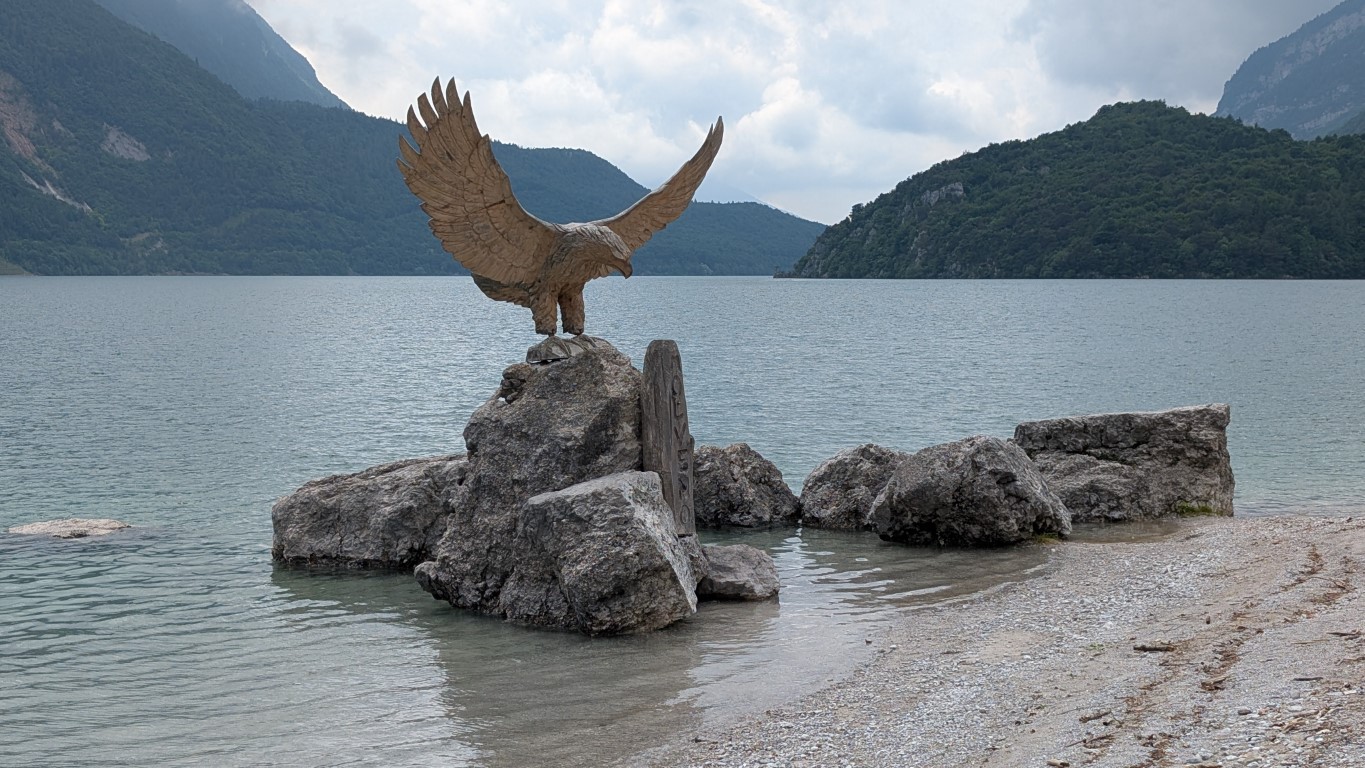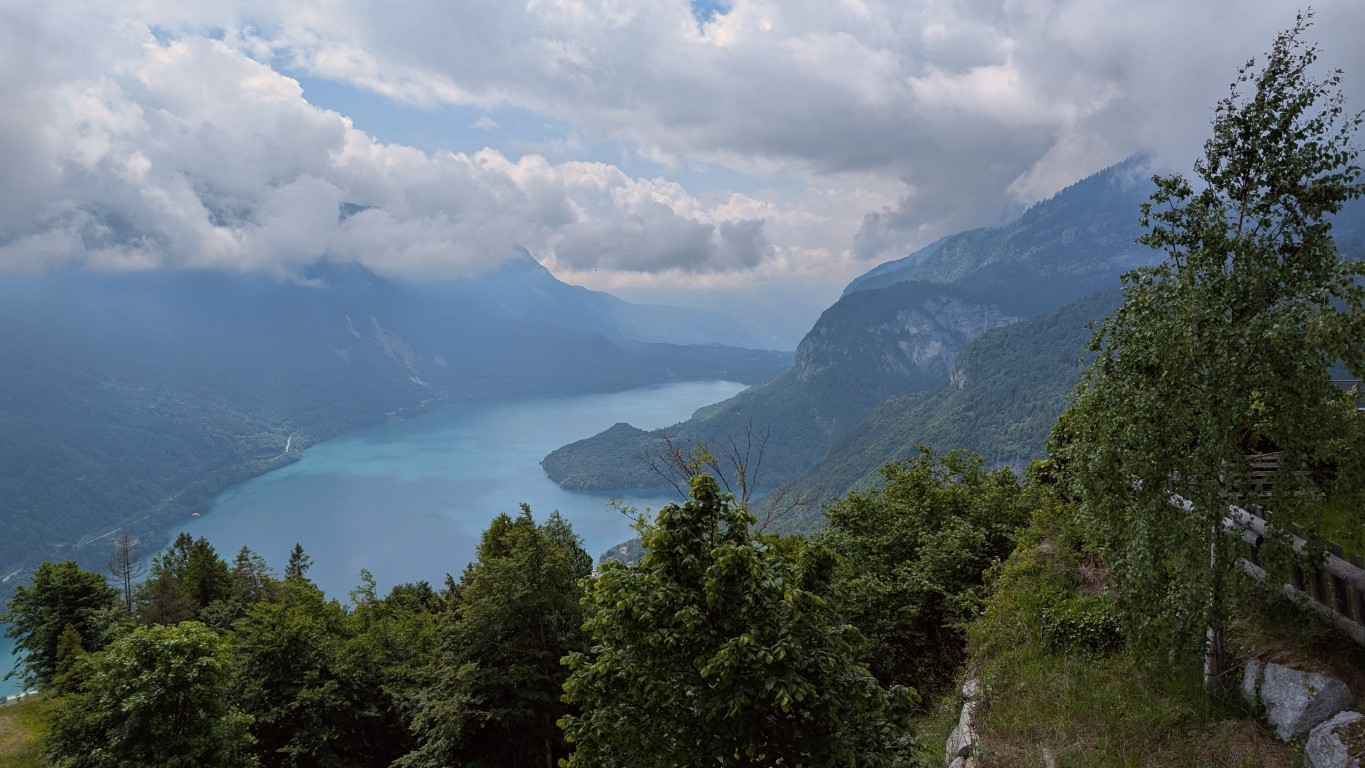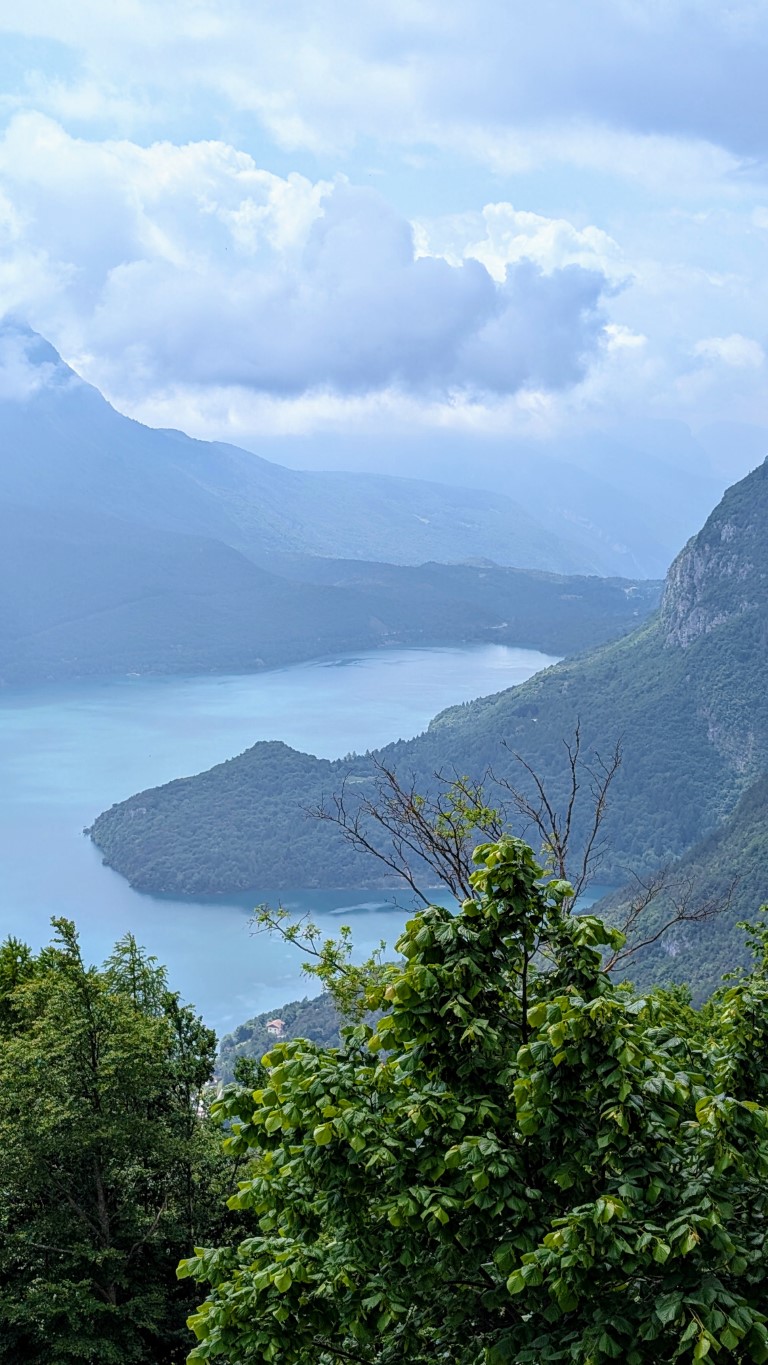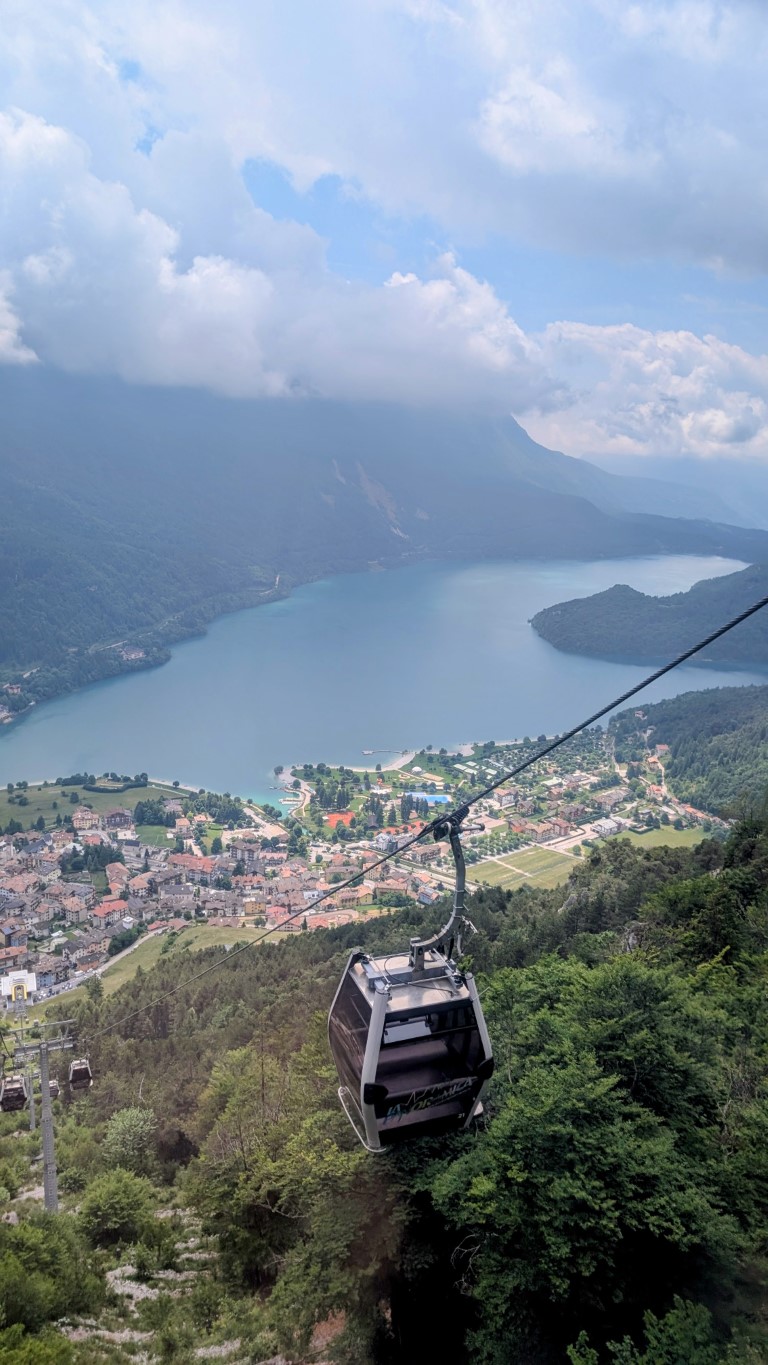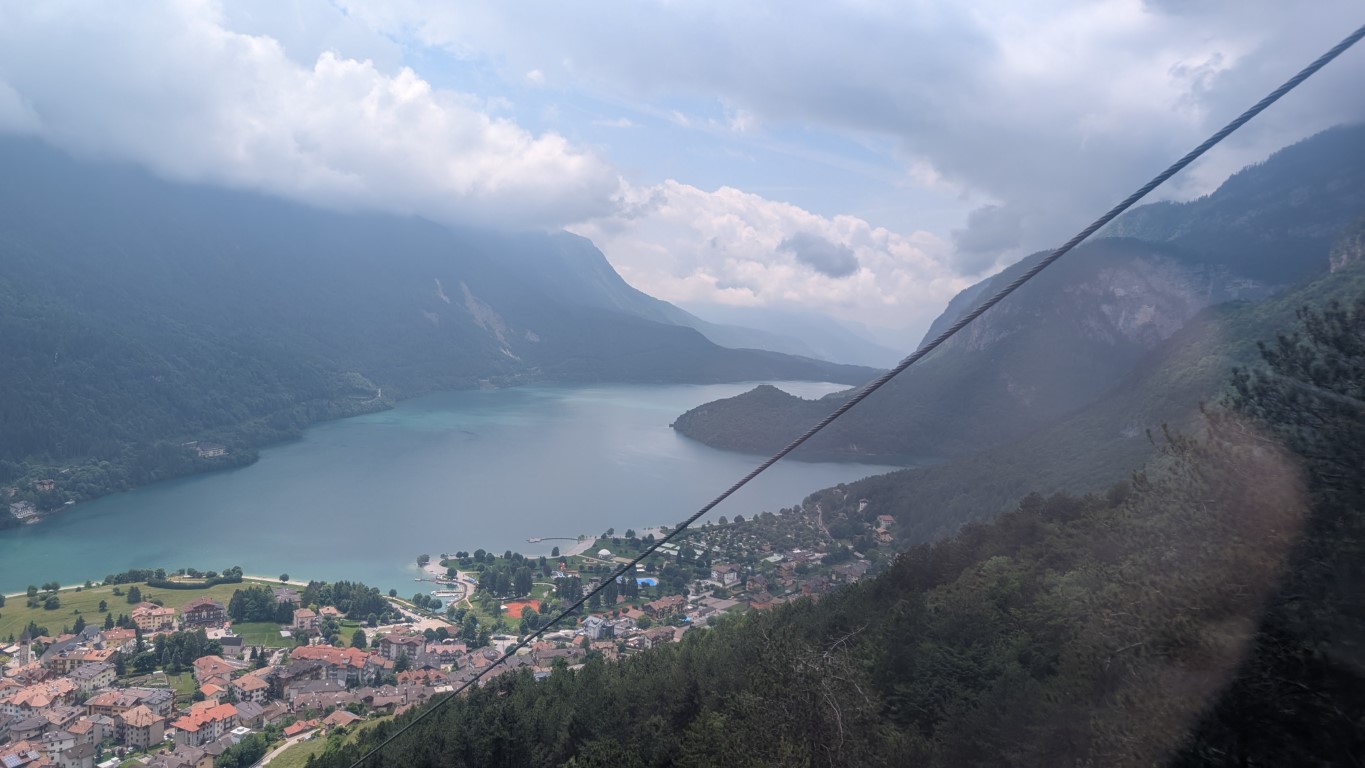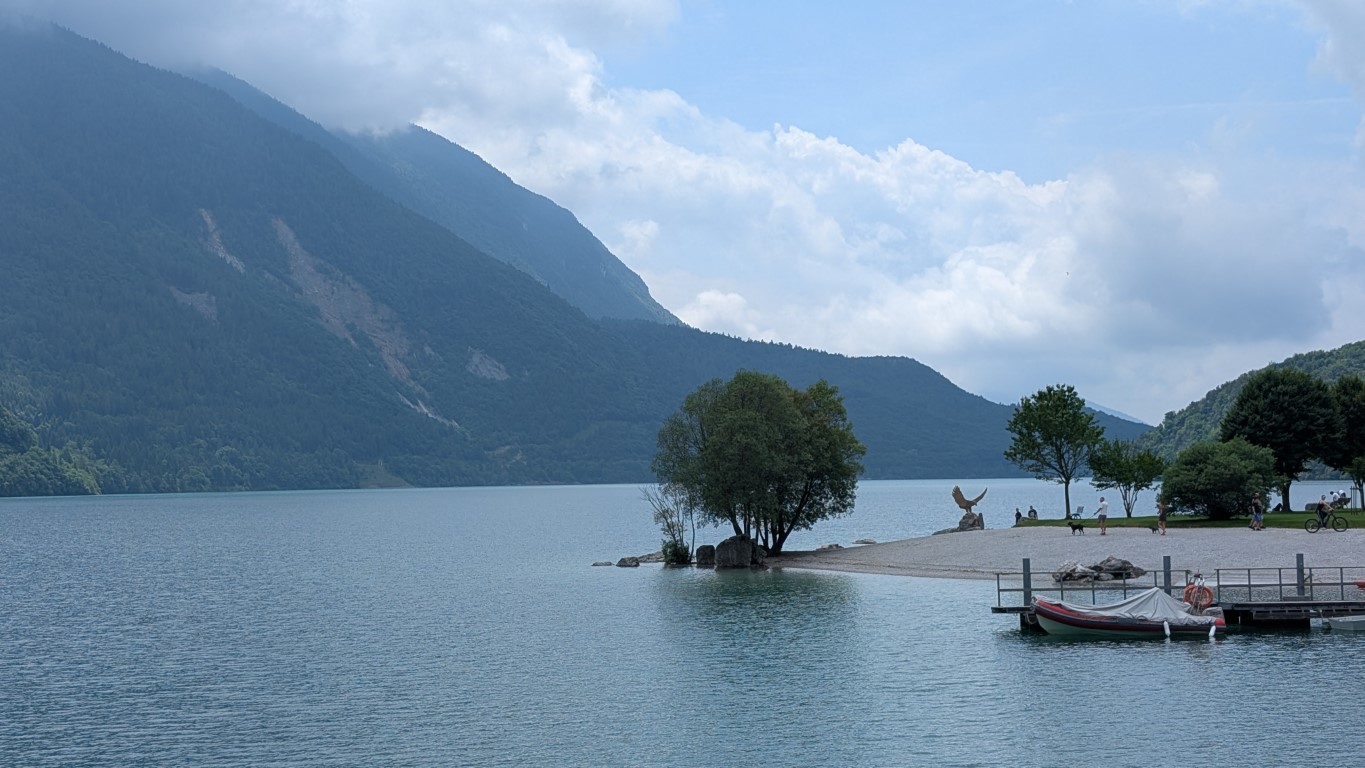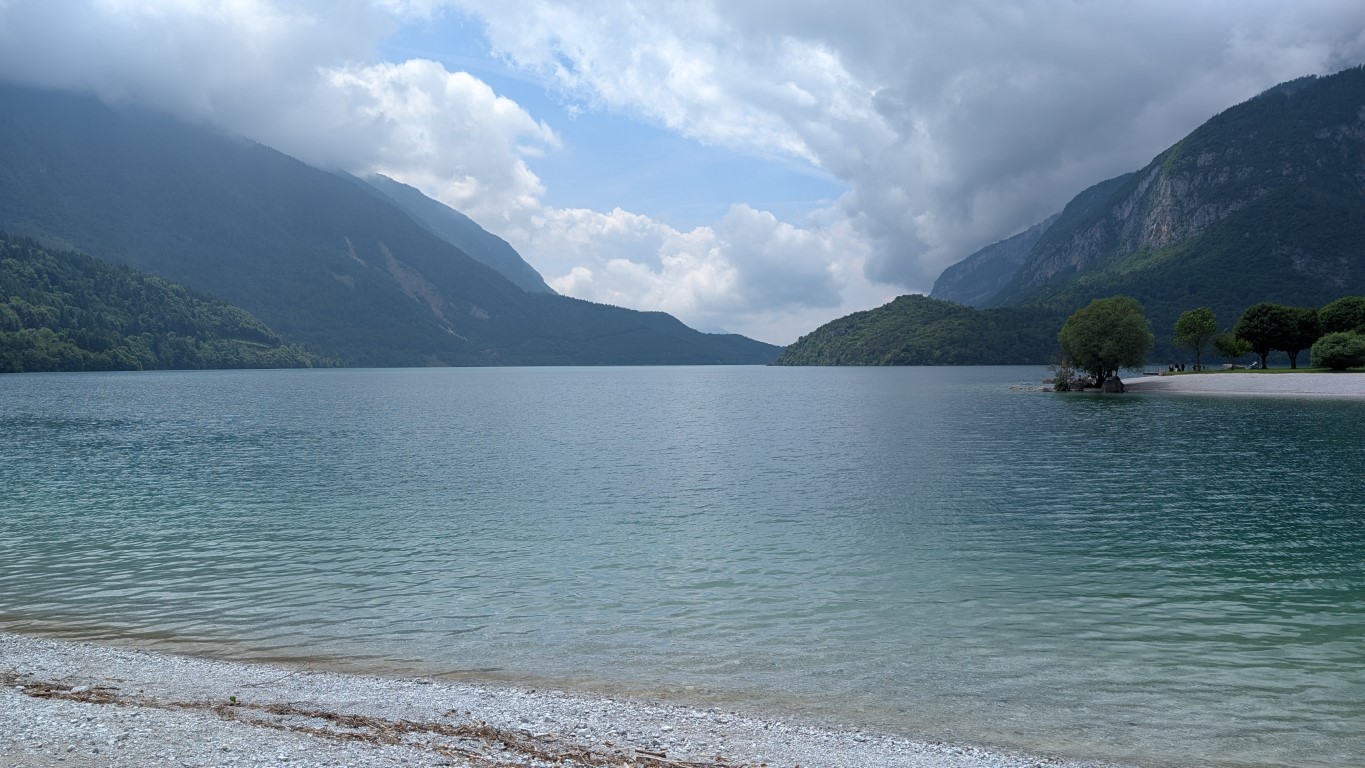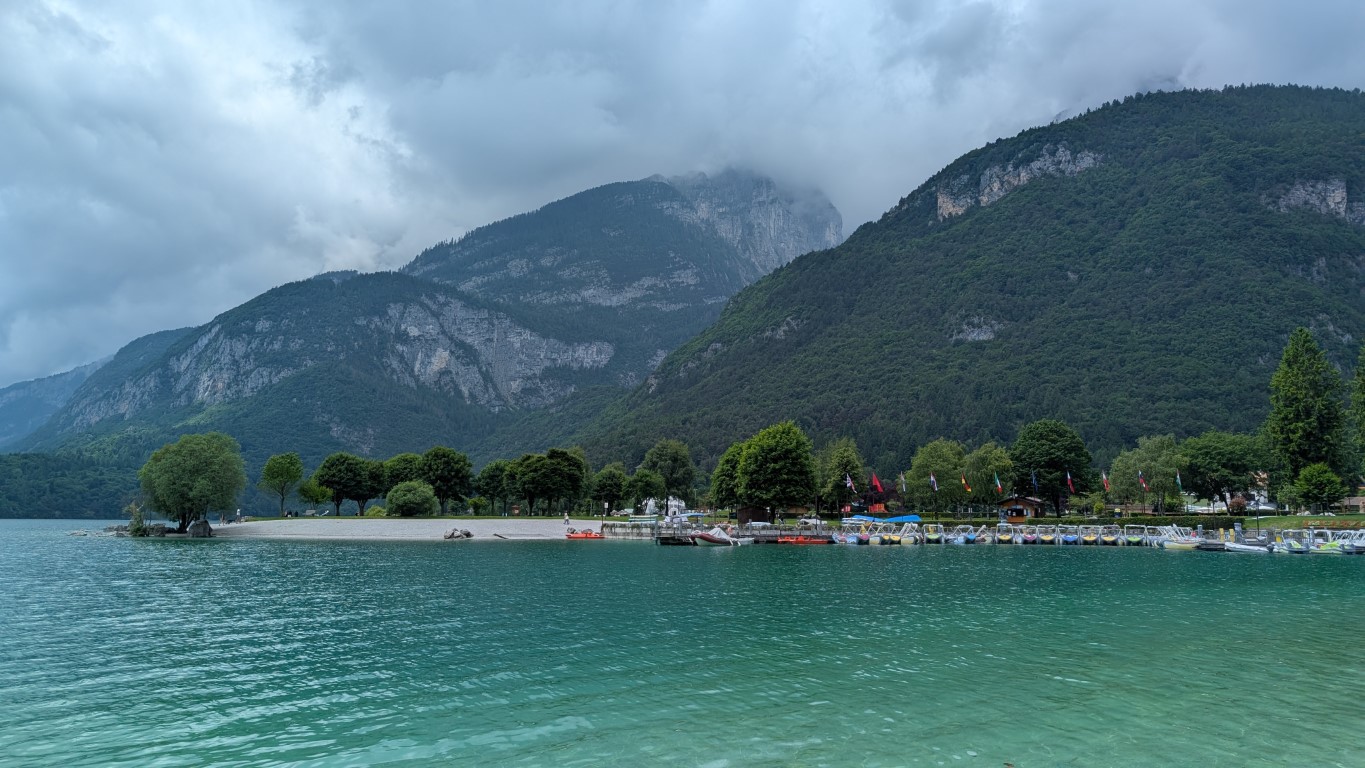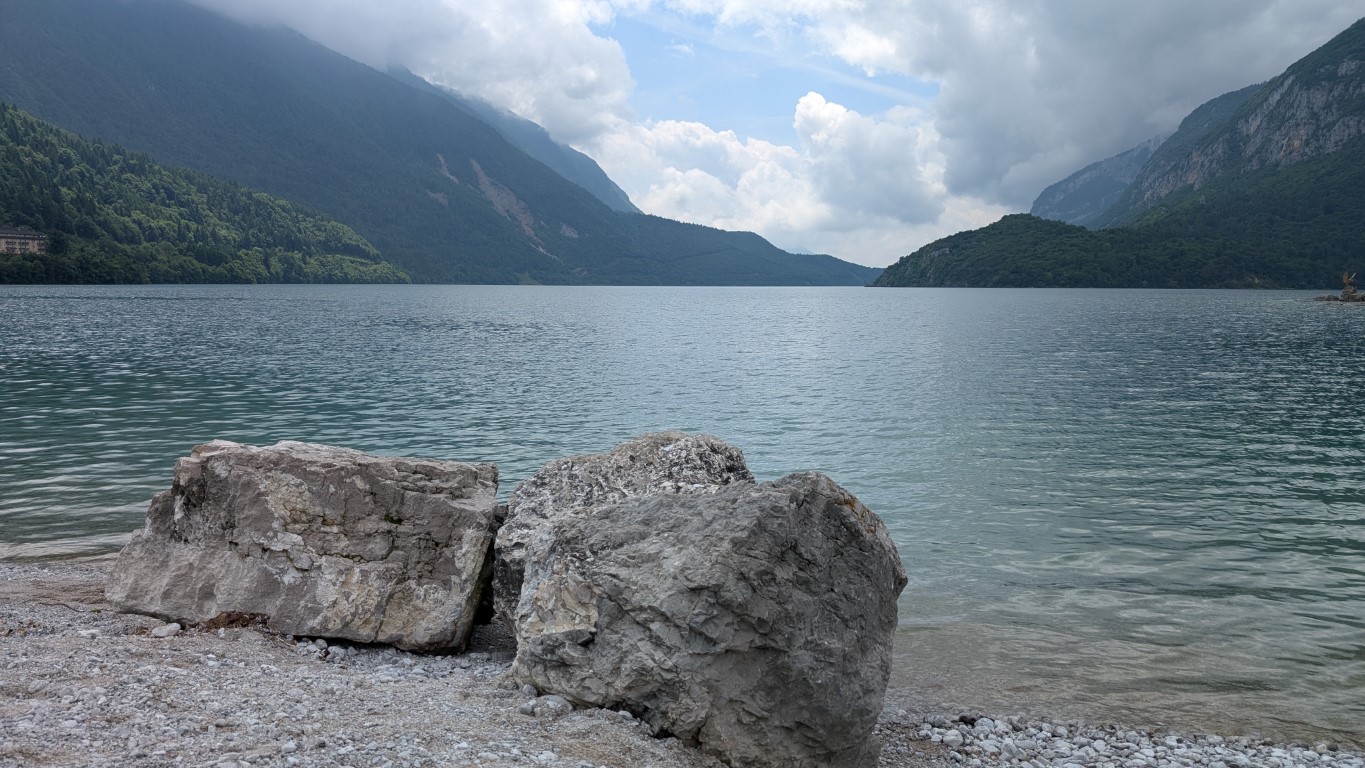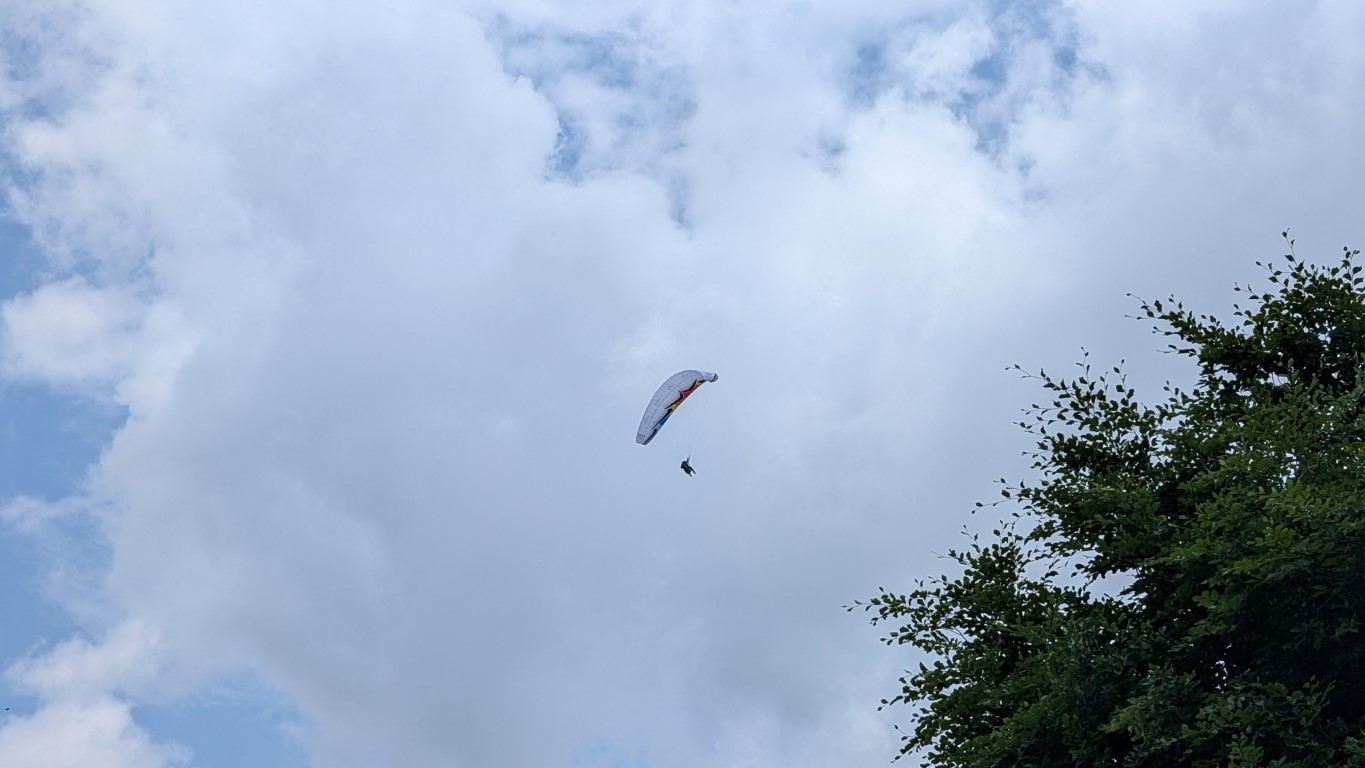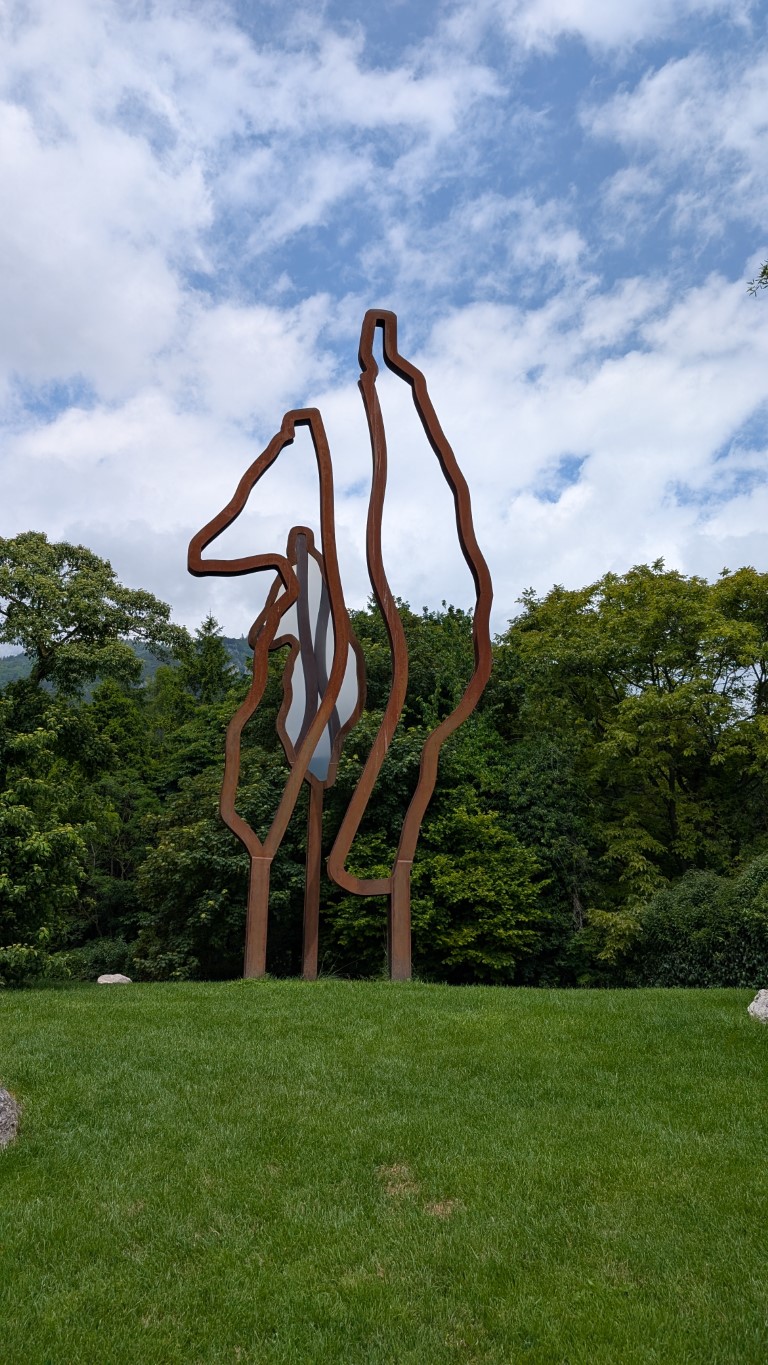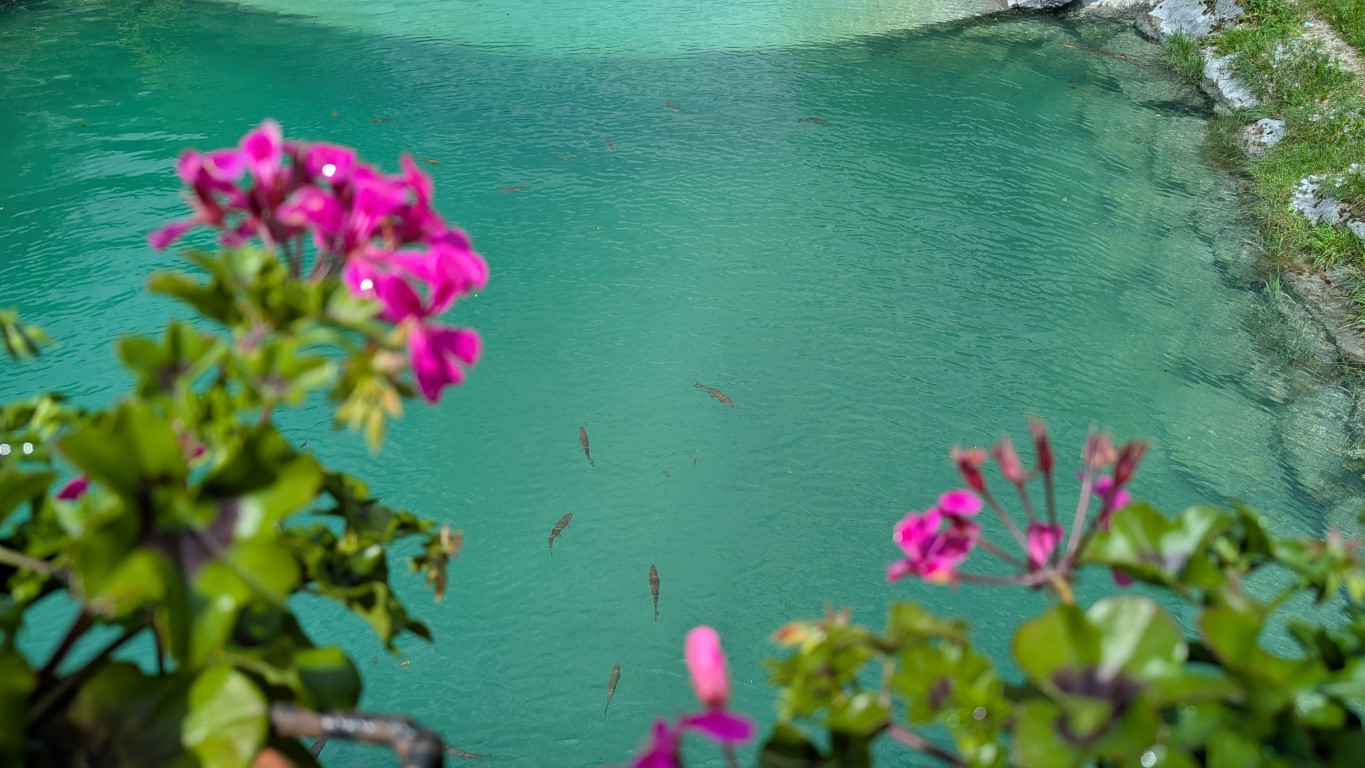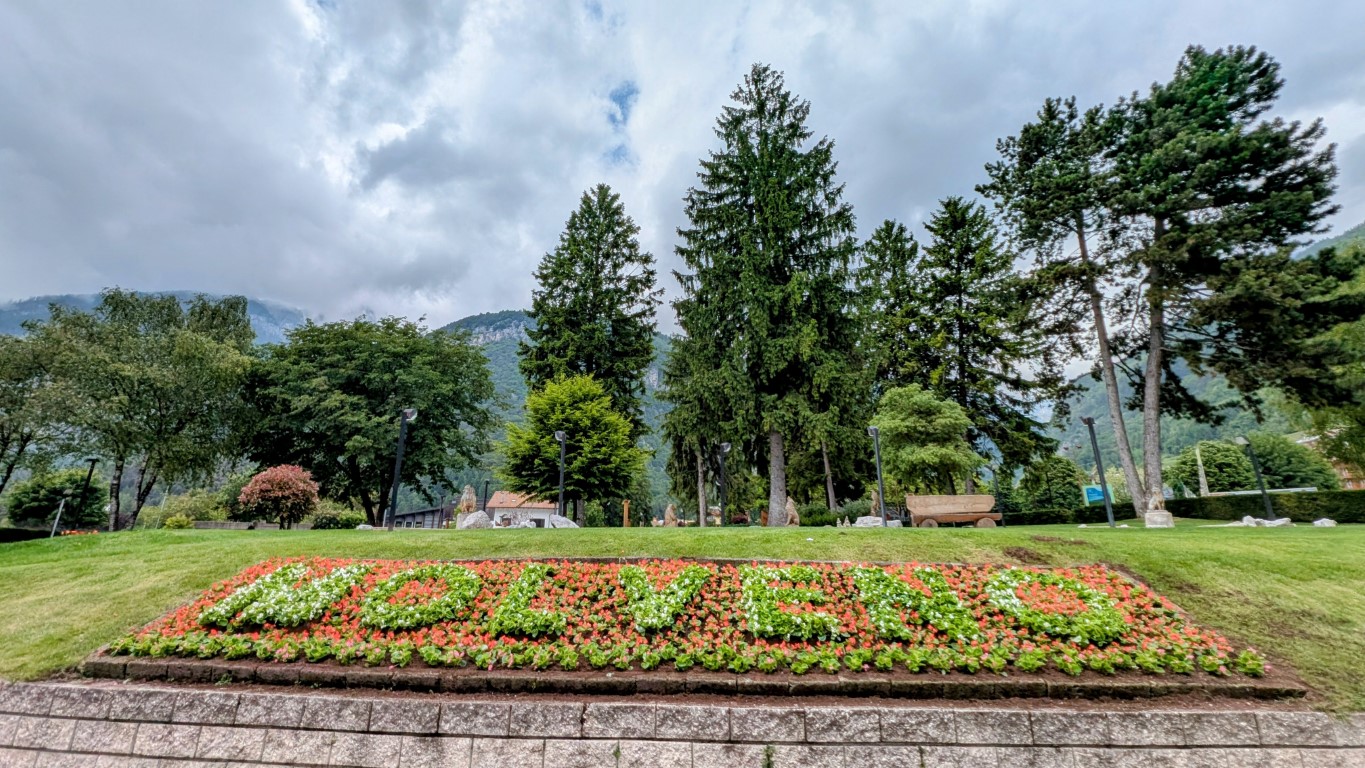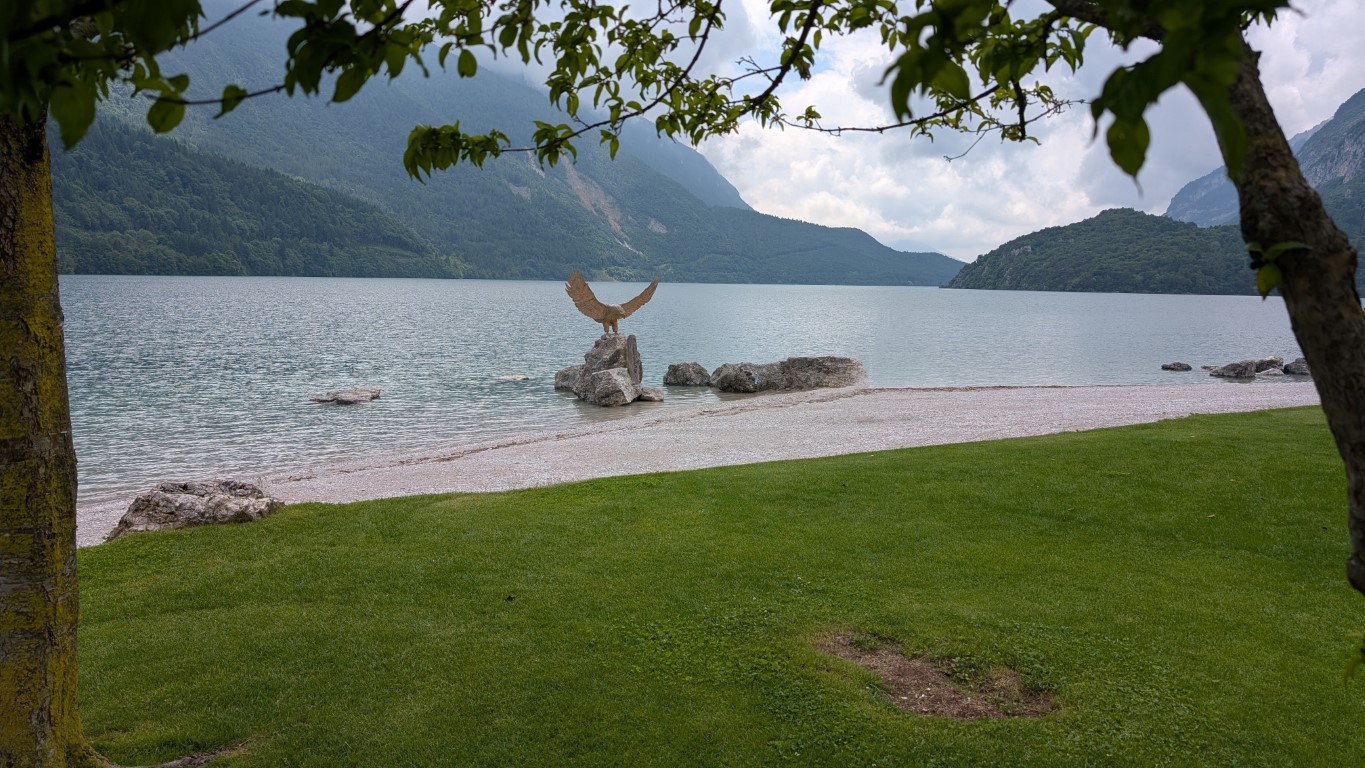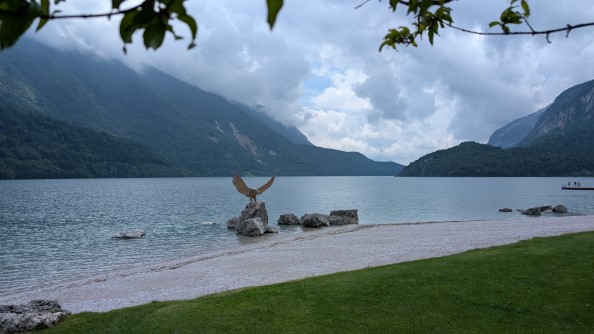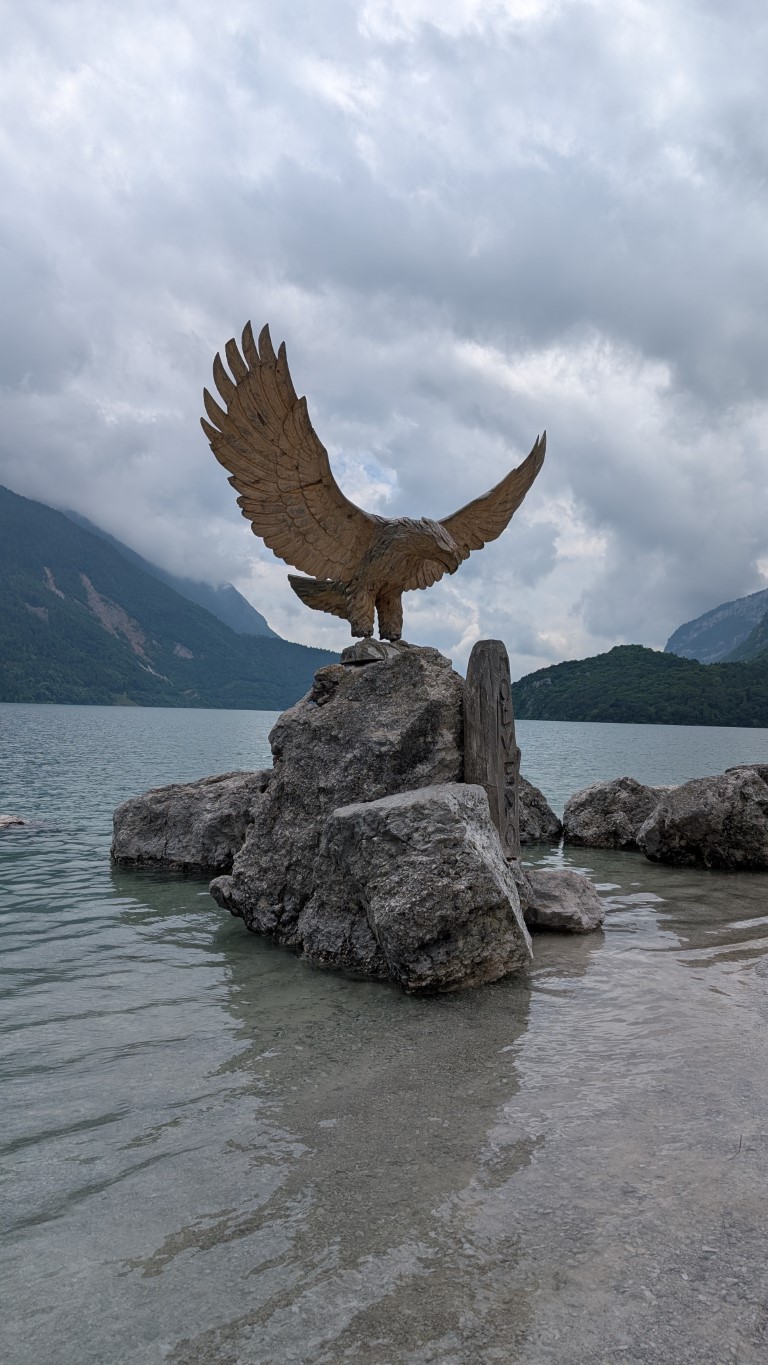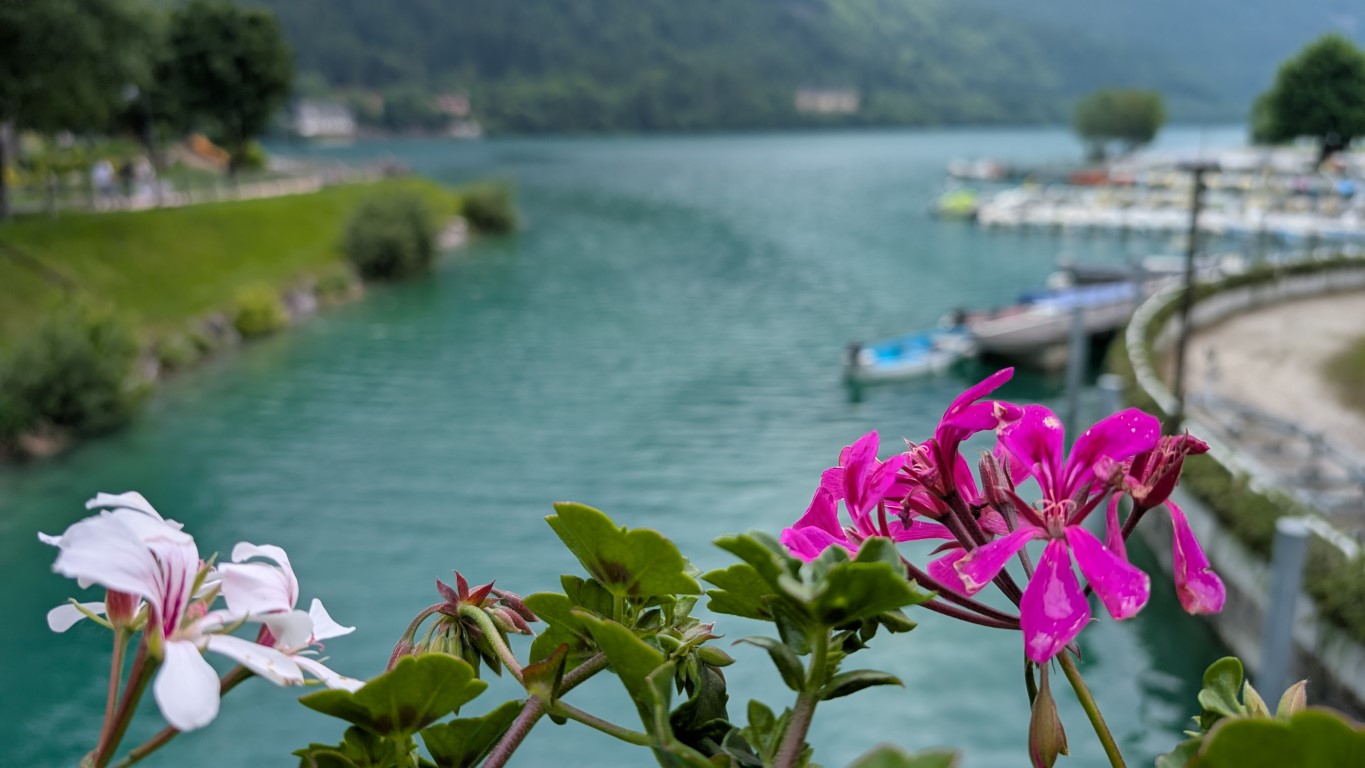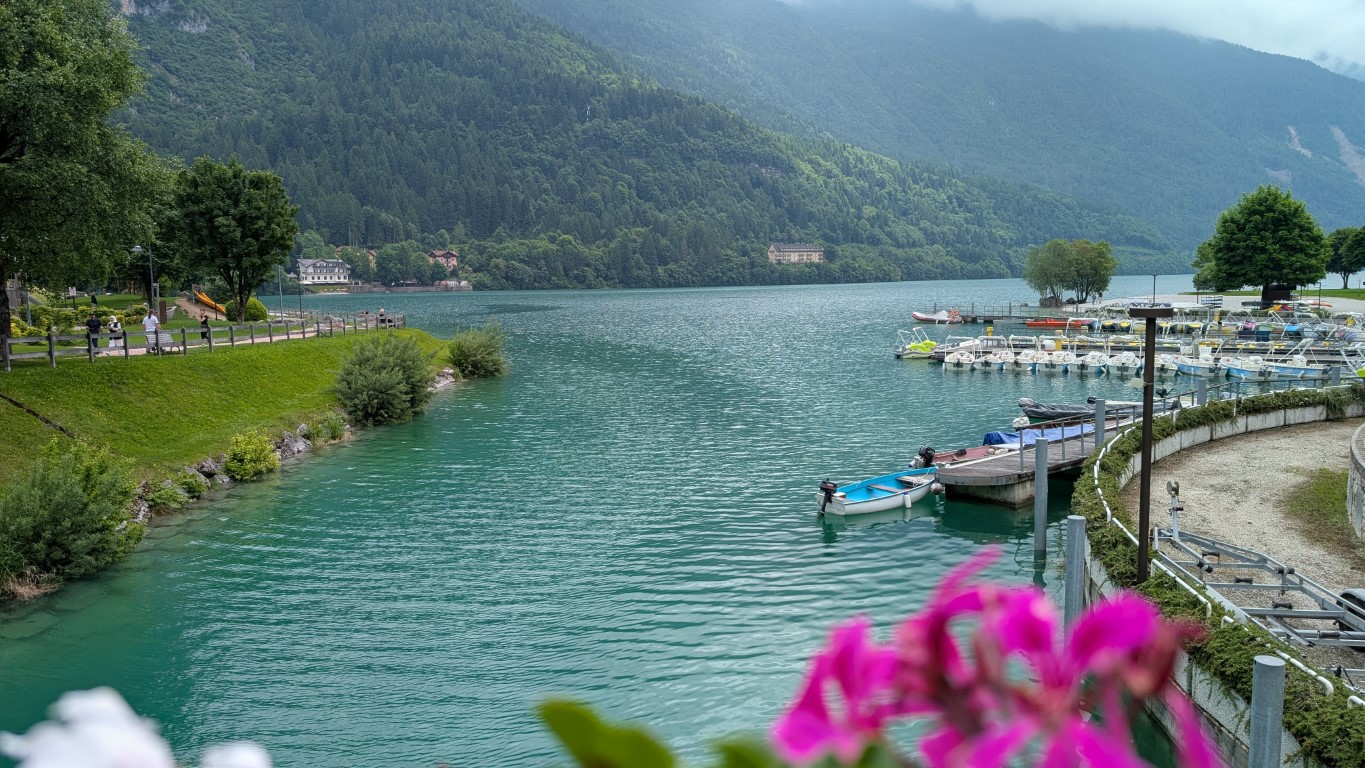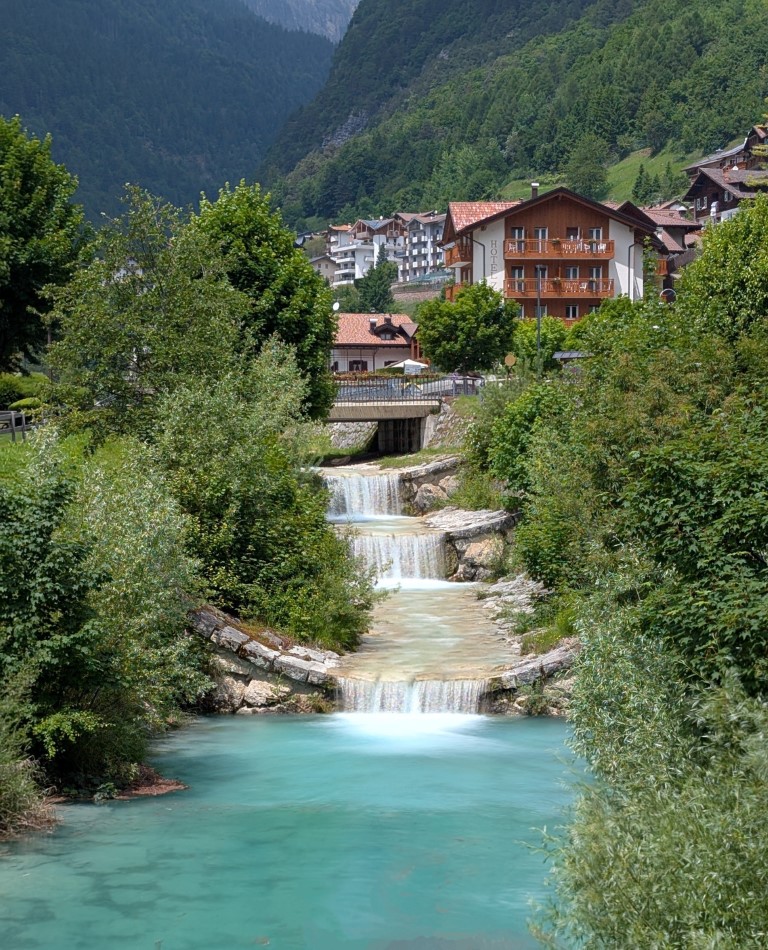Nestled between the rugged peaks of the Brenta Dolomites and the wooded ridge of the Paganella lies a lake like a liquid gem – Lake Molveno. It shimmers deep blue, as if it contained the blue of the sky itself. Its shores are lined with old cart tracks, forests whispering with myths, and the whispering waves that tell stories – if you know how to listen.
Lake Molveno is not only a geological wonder, born from the collapse of an entire mountainside after the last Ice Age. It is also a silent chronicler – a lake with a memory. And so it's no surprise that an ancient legend also surrounds it. A story of light and shadow, of loss and eternity.
The Legend of the Sunken Shepherdess
It is said that where today the waters of Lake Molveno gently lap against the peninsula on the western shore, there once stood an alpine pasture. A lush, green meadow where lived a girl – Alba, the daughter of an old shepherd. Alba was known for her clear voice, with which she sang an ancient song every evening, one so pure that even the animals of the forest fell silent to listen.
One day, so the story goes, Alba encountered a stranger emerging from the depths of the forest. He was tall, clad in dark robes, his eyes hidden like glowing coals beneath a hood. He offered her wealth and power if she would give him the song of her ancestors. But Alba just smiled sadly and said, "A song born of love cannot be sold."
The stranger disappeared with a curse on his lips – but the following night, the earth shook as if a giant had struck the heart of the mountain. Rubble slid loose, a massive rock avalanche thundered into the valley, burying the alpine pasture, the forests, even the stream that once flowed shimmeringly through the meadows.
When the dust settled, all was silent. In place of the alpine pasture, a depression remained. And in this depression, slowly, almost timidly, the water collected—clear, pure, and deep like an unforgettable song.
Since then, people have called it Lago di Molveno.
When the lake sings
To this day, say the elders in the village of Molveno, on some evenings, when the mist rises from the Rio Lambin and the stars begin to dance in the lake, a voice can be heard. Soft, comforting, like the whisper of the past. Some believe it is the wind. Others know: It is Alba, still singing her song to remind the mountains that even in the depths of destruction, beauty can be born.
Nature, history and myth in one breath
Lake Molveno is far more than just a deep blue spot on the map. With a depth of 124 meters and a catchment area that stretches amphitheater-like between Monte Gazza, Passo di Andalo, and the Brenta peaks, it is a jewel of Trentino. Its origins—a prehistoric landslide that devoured forests and left behind tree stumps that have survived for millennia—are now evident in the crystal-clear waters, which once offered visibility of 14 meters.
But the lake is not just a natural relic; it is also a human creation. As a balancing reservoir for hydroelectric power plants, it has been used to generate energy since the 1950s. Water from the Sarca and other mountain rivers is channeled through tunnels and downpipes to generate electricity in the valley. In the process, the water level changes by up to 43 meters—and with it the landscape and life in the lake.
Today, the ecosystem is protected through targeted measures, but the balance remains fragile. Like the song of the shepherdess Alba, which hovers between loss and hope, Lake Molveno is a place of contrasts: natural and transformed, wild and tamed, silent and full of voice.
Visit a world between sky and water
Anyone who circumnavigates the lake—whether on the road along the eastern shore or the old cart track in the west—embarks on a journey through space and time. The Napoleonic fortifications on the peninsula, the reflective water, the tranquil Lago di Bior—everything seems to whisper stories.
And when you sit on the shore in the evening, when the light slowly moves over the Paganella and the lake is bathed in deep blue tones, listen carefully. Perhaps you'll hear it: Alba's voice. Or the pulse of the mountains. Or simply your own heart, beginning to sing in harmony with this lake.
Because some places are not just landscapes – they are legends.


